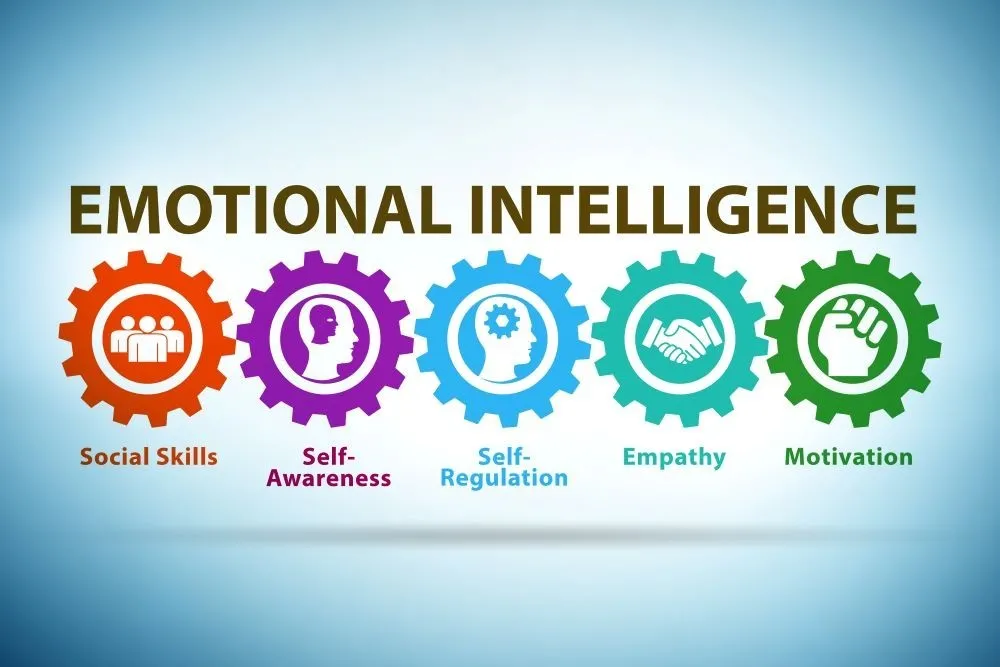In today’s competitive business world, leadership is not just about managing numbers and strategies—it’s about understanding people. Emotional Intelligence (EI) has become a cornerstone of effective leadership, and modern MBA programs are increasingly focusing on cultivating this critical skill. Emotional intelligence helps future leaders manage stress, resolve conflict, inspire teams, and build meaningful professional relationships. By combining leadership development with emotional intelligence training, MBA programs are preparing graduates to lead with empathy and effectiveness.
Why Emotional Intelligence Matters in Leadership
Emotional intelligence is the ability to recognize, understand, and manage one’s own emotions while also empathizing with others. Research shows that leaders with strong EI outperform those with only technical expertise, because they can connect with people on a deeper level and navigate challenges constructively.
For MBA students, developing emotional intelligence ensures they are not only competent managers but also inspiring leaders. This balance between IQ and EQ is essential for success in corporate leadership, entrepreneurship, and global management roles.
Emotional Intelligence in MBA Programs
MBA programs worldwide are integrating soft skills training into their curriculum, recognizing that leadership is just as much about people as it is about processes. Some of the common EI and leadership-related activities in MBA programs include:
- Workshops on Self-Awareness and Self-Regulation: Helping students identify strengths, weaknesses, and emotional triggers while learning strategies to manage them.
- Team-Building Exercises: Encouraging collaboration, empathy, and communication among diverse student groups.
- Leadership Labs: Simulated environments where students practice decision-making, negotiation, and conflict resolution.
- Executive Coaching and Mentoring: One-on-one sessions that provide personalized feedback to help students grow as emotionally intelligent leaders.
- Cross-Cultural Management Training: Preparing students to navigate diverse workplaces with sensitivity and adaptability.
How MBA Programs Build Leadership Through EI
Enhancing Self-Awareness
Students learn to assess their personality traits, emotional triggers, and leadership styles, ensuring they can adapt when leading different teams.
Developing Empathy
Through case studies, role plays, and collaborative projects, students practice understanding multiple perspectives and making empathetic decisions.
Strengthening Communication Skills
EI-based leadership training improves interpersonal communication, active listening, and non-verbal communication—all vital for effective leadership.
Managing Conflict and Stress
MBA graduates trained in EI can handle high-pressure environments, mediate disputes, and maintain team morale under stress.
Inspiring and Motivating Teams
Emotionally intelligent leaders are better equipped to build trust, rally teams toward common goals, and motivate high performance.
Career Advantages of EI-Focused Leadership Development
- Stronger Leadership Potential: Employers value leaders who can drive performance while maintaining healthy team dynamics.
- Better Networking and Relationship Building: Emotional intelligence enhances collaboration and professional networking skills.
- Increased Adaptability: EI enables leaders to respond strategically during rapid changes, such as market disruptions or crises.
- Higher Job Satisfaction and Retention: Emotionally intelligent leaders foster positive work cultures, reducing turnover and increasing team loyalty.
Final Thoughts
Business leadership is no longer defined solely by technical knowledge or analytical skills. Today’s most successful leaders combine strategic thinking with emotional intelligence to inspire and lead with authenticity. MBA programs that integrate emotional intelligence training alongside leadership development are shaping a new generation of business leaders who are empathetic, resilient, and future-ready. For aspiring managers and entrepreneurs, developing EI during an MBA is not just a skill—it’s a long-term career investment.
FAQ Schema
Q1: Why is emotional intelligence important in MBA leadership training?
Because it helps future leaders manage emotions, empathize with others, resolve conflicts, and inspire teams, making them more effective in real-world scenarios.
Q2: How do MBA programs teach emotional intelligence?
Through workshops, leadership labs, team projects, and coaching that focus on self-awareness, empathy, communication, and stress management.
Q3: Can emotional intelligence improve career growth after an MBA?
Yes, leaders with high EI are often promoted faster, build stronger networks, and are more successful in managing diverse teams.







